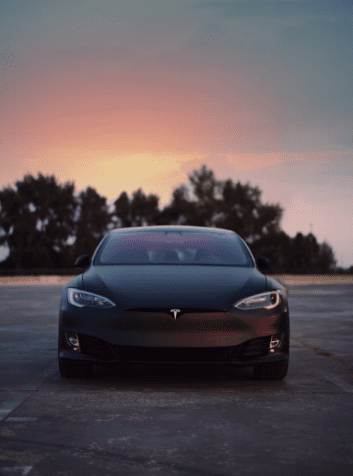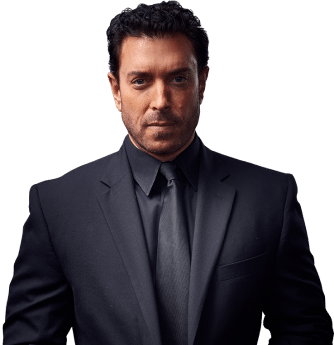
Can You Sue Tesla for a Full Self-Driving Crash in Georgia?
Tesla’s Full Self-Driving (FSD) technology uses cameras, sensors, and advanced software to control steering, acceleration, and braking with minimal driver input. FSD systems can navigate on highways, change lanes, park, and follow traffic signals.
Tesla markets FSD as an advanced driver assistance tool, not a fully autonomous feature, since it requires the driver to stay alert and ready to take control. However, some drivers mistakenly believe that a Tesla equipped with FSD can safely operate without their involvement, which can lead to dangerous collisions. Even careful, attentive drivers of Teslas with FSD features can be involved in serious accidents if their vehicles experience malfunctions.
If a defect in an FSD system or its components causes a Tesla Full Self-Driving crash in Georgia that injures you, you could have grounds for a Tesla accident lawsuit in Georgia. An attorney can evaluate the facts and determine whether Tesla’s actions or omissions render them legally responsible for your injuries.
Common Causes of FSD-Related Crashes
Many factors can lead to crashes when a Tesla vehicle operates in Full Self-Driving mode, including:
- Software Misinterpretation of Road Conditions – FSD systems sometimes read lane markings, signs, or traffic lights incorrectly, especially in bad weather or lighting conditions.
- Sensor or Camera Malfunction – Faulty sensors or obstructed cameras can prevent FSD systems from detecting nearby vehicles, pedestrians, or obstacles.
- Poor Decision-Making in Complex Traffic – In busy intersections or unpredictable traffic patterns, FSD systems might choose maneuvers that confuse other drivers or cause dangerous conflicts.
- Improper Updates or Calibration – If a Tesla software update installs incorrectly or a system calibration drifts out of alignment, it could impair the vehicle’s ability to respond accurately.
- Driver Overreliance on Automation – Some drivers place too much trust in FSD systems and don’t pay enough attention to the road, which can delay reactions if the vehicle makes an error.
Who May Be Liable in a Tesla FSD Accident?
Full Self-Driving crash liability depends on what caused the crash. If a driver ignored Tesla’s instructions to remain engaged and ready to take over, that driver could be responsible. If a defect in the FSD system, sensors, or cameras caused the accident, Tesla could be held liable in a product liability claim. In some cases, both the driver and the manufacturer might share fault. For example, Tesla might be at fault if its FSD system made an unsafe maneuver, while the driver could face liability for not paying attention or for reacting too slowly.
Other parties could also be at fault. For instance, a road maintenance company could be liable if poor signage or unsafe lane markings contributed to the wreck. A third-party service provider that performed faulty maintenance could also share responsibility. Each FSD accident case requires a careful review of the facts, crash data, and vehicle records to determine who bears legal and financial responsibility.
Georgia Laws on Product Liability and Negligence
Georgia law allows injured parties to seek compensation if a product defect or someone’s failure to use reasonable care causes harm.
Under O.C.G.A. § 51-1-11, manufacturers can be liable for selling products that are defective at the time of sale if the defects harm consumers. Product liability claims must be filed within 10 years of the product’s first sale. Injured parties can also file negligence-based claims under O.C.G.A. §§ 51-1-6.
Georgia follows a modified comparative fault rule in cases involving injured parties who are partially responsible for their own injuries. The law says that if an injured person is 50 percent or more at fault, they cannot recover compensation from other parties. This rule can be relevant in cases involving injured parties who were driving FSD vehicles at the time of the accident.
Can You Sue Tesla Directly in Georgia?
You might be able to sue Tesla directly if the evidence suggests that a defect in its Full Self-Driving system or another vehicle component contributed to the crash that injured you. Tesla FSD legal claims often fall under Georgia’s product liability laws, which hold manufacturers accountable for selling unsafe products. You might also have a claim if Tesla’s actions, such as releasing faulty software updates or failing to issue proper warnings, directly contributed to the accident. An attorney can review crash reports, vehicle data, and other evidence to determine whether you might be able to sue Tesla in Georgia.
Steps to Take After an FSD Crash
If you get hurt in a Tesla Full Self-Driving crash in Georgia, you should take steps to protect your health and your legal rights as soon as possible. Here’s what you can do:
- Move to a safe location if you can do so without risking further harm.
- Exchange contact and insurance information with all drivers involved.
- Take clear photos and videos of vehicle damage, road conditions, and any visible injuries.
- Speak with witnesses and ask for their names and contact details.
- Seek medical attention right away, even if you feel fine at the scene.
- Save any dashcam or in-car footage from the Tesla before it can be overwritten.
- Contact a lawyer who can review your situation and explain your options.
Why You Need a Personal Injury Attorney for a Self-Driving Crash
Cases involving autonomous vehicle accidents in Georgia can involve complex technology and confusing layers of liability. Things can get even more difficult if you try to take on a large company like Tesla with significant resources to defend against claims. Without legal guidance, you might struggle to get key evidence, understand technical data, or meet strict legal requirements. You could also run into tricky legal arguments from corporate lawyers who know how to shift blame and avoid responsibility.
A personal injury attorney can investigate the crash on your behalf, work with experts to review the vehicle’s FSD systems, and identify all potential sources of compensation for your claim. They can also negotiate with insurers and manufacturers and represent you in court if necessary. The right legal representation can significantly increase your chances of a successful outcome.
Contact a Car Accident Lawyer in Georgia
If you suffered injuries in a crash involving a Tesla with Full Self-Driving features, The Scott Pryor Law Group can help you understand your legal options. We can review the facts, gather useful evidence, and develop a strategy that fits your situation. Contact us today to arrange your free initial consultation and find out how we can help you pursue the compensation you deserve.
Photo by Dmitry Novikov on Unsplash










